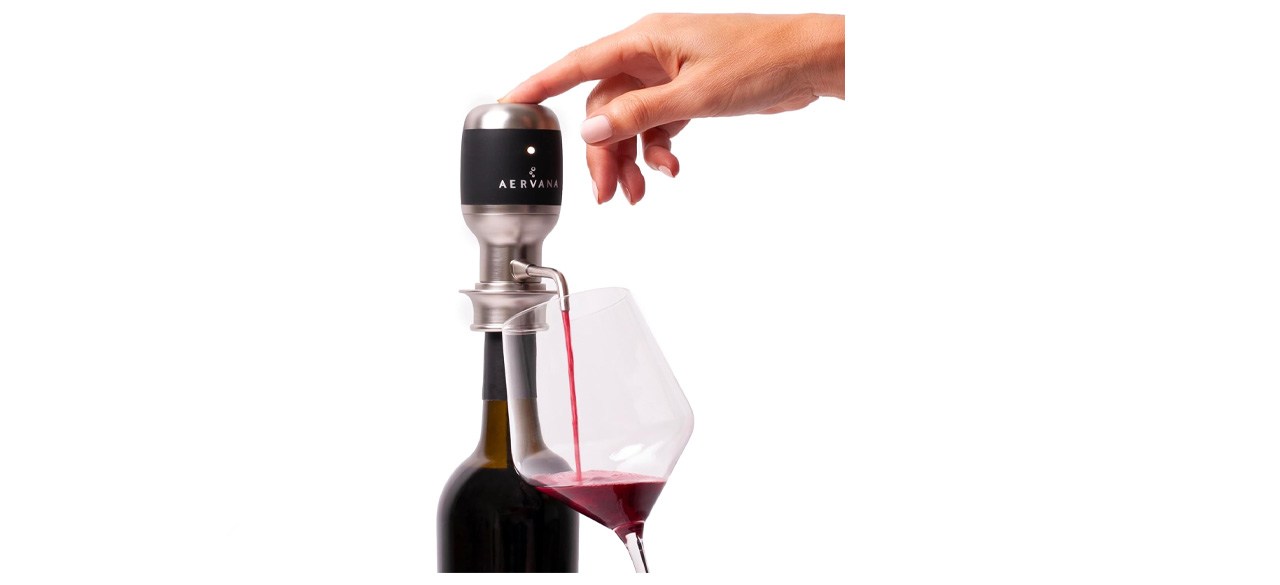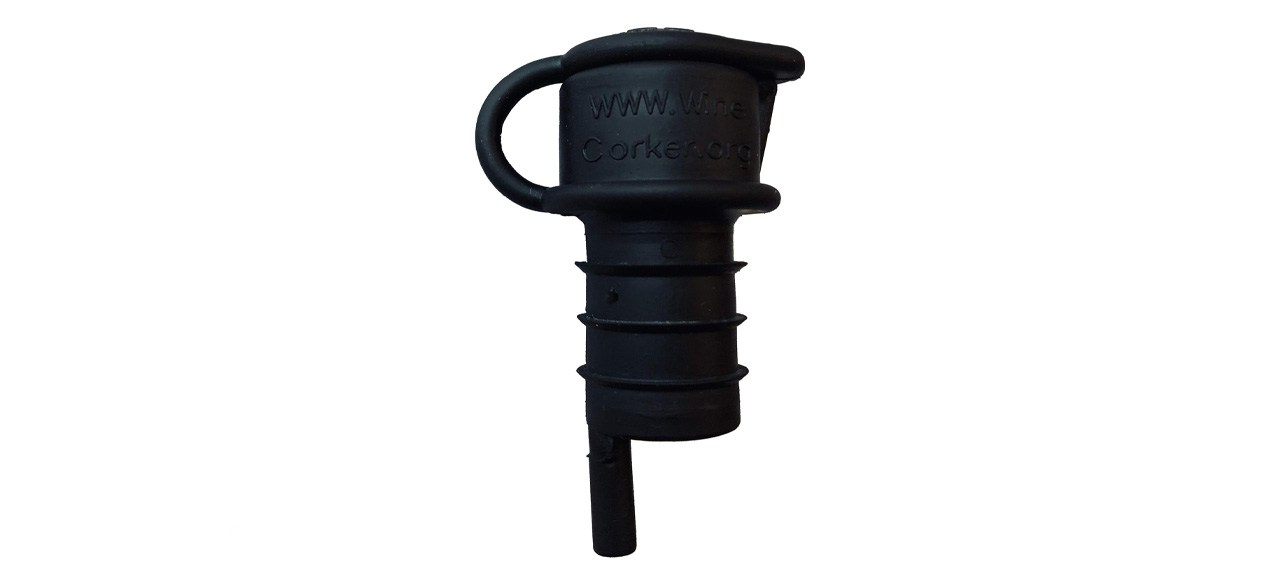The best wine aerators for full-bodied flavor
If you have neglected to decant the wine ahead of time and you're ready to have a taste, a wine aerator can save the day.

Which wine aerator is best?
Wine has two natural enemies: light and air. Although the best way to preserve your favorite vintage is to keep it in a dark, cool place, when you’re ready to drink it, letting it breathe for at least 30 minutes unleashes the wine’s delicious bouquet and complex flavors.
If you have neglected to decant the wine ahead of time and you’re ready to have a taste, a wine aerator can save the day. These simple tools swirl air through the wine to help develop its fullest flavor in just seconds. For effortless aeration at the touch of a button, the Aervana Original Electric Wine Aerator is a good choice.
What to know before you buy a wine aerator
Method of aeration
A wine aerator may seem like an odd expense. After all, doesn’t wine become aerated on its own with time? Yes, but sometimes you need a faster way to unlock the wine’s complex tasting profile.
The key is to choose the aeration method that works best for you. Budget aerators may not perform much better than simply letting a wine sit for a while. These have a small hole that introduces air into the wine but no method for swirling the air into the wine.
More expensive aerators push and blend air into the wine. You know it’s working when your wine gurgles. This method of multi-stage aerator also removes sediments that can influence the wine’s taste.
Full bottle aeration vs. one glass at a time
If you are a party of one, there’s no sense in introducing air into an entire bottle of wine. Look for an aerator that delivers one delicious glass at a time.
On the other hand, if you’re having a dinner party, it seems unnecessary to use a single-service aerator. A full bottle aerator is the best choice in that situation.
Materials
You have choices when it comes to wine aerator materials. They are commonly made from:
- Acrylic
- Stainless steel
- Plastic
- Rubber
Most high-end aerators are made from stainless steel, which is easier to clean and more durable. However, these come with a sometimes hefty price tag.
What to look for in a quality wine aerator
Solid construction
Wine aeration is not a full-contact sport, but the aerator you choose should still be sturdy and well-made. Look for seamless pouring spouts and sturdy attachment points built from high-quality metals and plastics.
Food-safe materials
Anything made from plastic and designed for food or drink service must be labeled as food-safe. If your wine aerator is plastic, it should be BPA-free.
Multiple uses
It’s a terrible waste of a beautiful vintage when an open bottle is spoiled by too much air. Look for a wine aerator that also doubles as a stopper or cork. This keeps wine fresh.
Universal fit
Although most wine bottles follow industry standards in terms of openings for easier corkage, some are slightly larger or smaller than others. Wine aerators with a flexible silicone piece that enters the mouth of the bottle are more useful than a rigid plastic insert that does not conform to variations in size.
How much you can expect to spend on a wine aerator
The price of an aerator will vary depending on a few factors (e.g., if it’s electric or if it aerates a full bottle or single glass of wine). Expect to spend $10-$50.
Wine aerator FAQ
Do wines that are decanted still need aeration?
A. Yes. Heavy-bodied wines should be aerated as they are decanted and allowed to sit for a few more minutes.
If a wine is not fully in flavor after it’s decanted, aeration can help.
Do you have to use a wine aerator?
A. No. Nathan Myhrvold, author of the seminal molecular gastronomical book “Modernist Cuisine” suggests a simpler method that uses an immersion blender.
- Pour wine into a bowl (or wide-mouthed decanter).
- Use an immersion blender to aerate the wine for 30 seconds.
This is not the most sophisticated presentation of wine, but it does the trick in the pinch.
Alternatively, many people allow their wine to sit for longer. Air naturally enters the wine over time.
What’s the best wine aerator to buy?
Top wine aerator
Aervana Original Electric Wine Aerator
What you need to know: It is expensive, but wine connoisseurs swear by it.
What you’ll love: It’s electronic and aerates wine instantly with six times the aeration of non-electric gravity aerators. Plastic parts are food safe, and it comes with an easy operating manual. The design minimizes splashing and drips.
What you should consider: The tube is too short for large bottles.
Top wine aerator for the money
Haley’s Corker 5-In-1 Wine Aerator
What you need to know: It’s one tool to handle every aspect of wine service.
What you’ll love: It aerates and filters wine at the same time. You’ll have no more messy bits of cork floating in your final glass. The airtight stopper is spill-proof and keeps wine fresh. It’s also available in a screw-top version.
What you should consider: Even though this is billed as being leak-proof, you need to store wine bottles upright after opening, as some users report leaks.
Worth checking out
Rabbit Wine Aerator And Pourer
What you need to know: The Rabbit is a well-known tool recommended by wine pros and amateur oenophiles alike.
What you’ll love: It is silicone and stainless steel, which makes it both easy to clean and sturdy for years of use. An oversized bowl increases aeration for deeper, more complex flavors.
What you should consider: This fits most bottles but not all. Use caution if the opening is especially large.
Prices listed reflect time and date of publication and are subject to change.
Check out our Daily Deals for the best products at the best prices and sign up here to receive the BestReviews weekly newsletter full of shopping inspo and sales.
BestReviews spends thousands of hours researching, analyzing and testing products to recommend the best picks for most consumers. BestReviews and its newspaper partners may earn a commission if you purchase a product through one of our links.























